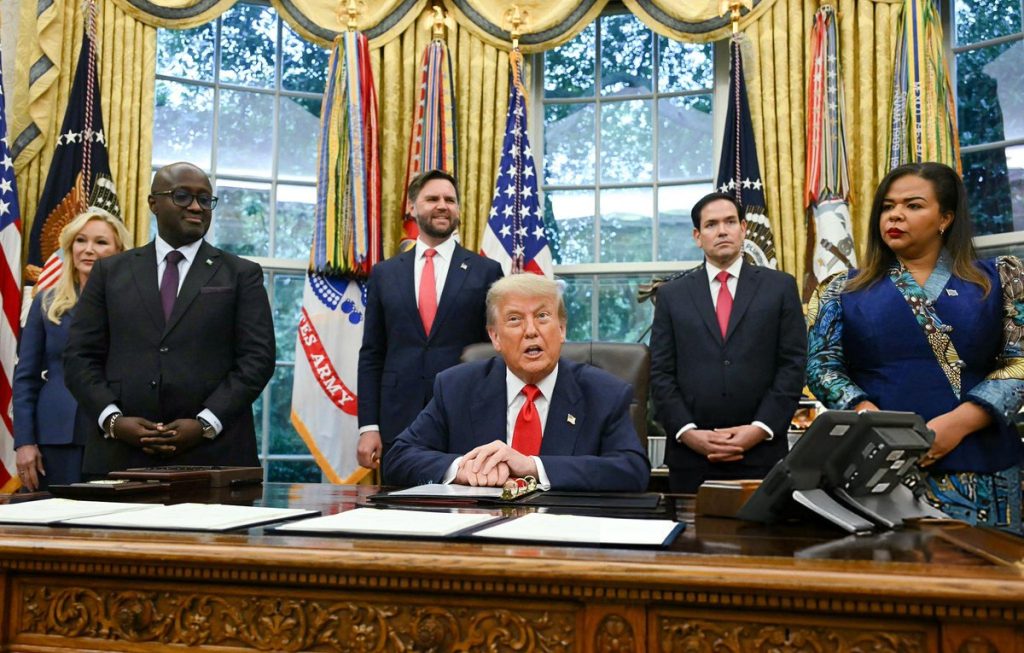
Image:X @Qatar News Agency
Efforts to end conflict in eastern Democratic Republic of Congo (DRC)—crucial to U.S. President Donald Trump’s plans to unlock the region’s vast mineral wealth—are set to intensify by Sunday. However, the fragile process is being complicated by the uncertain future of a small rebel group.
A peace deal brokered by the United States and signed last month by the foreign ministers of Rwanda and the DRC aimed to halt the surge in violence triggered by the rapid advance of the M23 rebel group. The agreement was expected to pave the way for stability and economic opportunity in the mineral-rich region.
Rwanda has denied accusations from the UN and Western nations that it supports M23 to gain access to Congo’s natural resources. Kigali insists its forces are only present in the DRC to counter the Democratic Forces for the Liberation of Rwanda (FDLR)—a rebel group it views as a national security threat.
The FDLR is made up of remnants of the forces responsible for the 1994 genocide in Rwanda. While security experts argue the group has only a few hundred fighters and poses little threat on the battlefield, the peace agreement still requires the DRC to “neutralise” the FDLR as a condition for Rwanda’s military withdrawal.
The group’s symbolic weight and political significance could undermine the broader goals of Trump’s diplomatic push in the region, especially if consensus over how to deal with the FDLR continues to stall progress.
